Love, writes Margaret Atwood in her poem Variations On The Word Love, 'is a word we use to plug holes'. It fits, she writes, in 'those warm blanks in speech' but, somehow, this word is always found wanting- its four letters are 'too sparse to fill those deep bare vacuums between the stars that press on us with their deafness'.
Love. It is the relentless and enduring subject of books, films, surveys and songs. It is the end goal of our own personal quests. It is also a commodity, love is traded all around us and we are encouraged to buy into it and a marketing tool, used to sell us everything from food to shower gel.
Depending on who is speaking love is somehow both rare and impossible to define, something you'll only find once in a lifetime or concrete, empirical and statistically possible to determine. The Oxford English Dictionarydefines it as affection and attachment. It is 'a feeling or disposition of deep affection or fondness for someone, typically arising from a recognition of attractive qualities'. It's the focus of our lives - to love and be loved. 'Love', to quote the cheesiest and most hackneyed film of all time, 'really is all around' but what, actually, is love? Is it a monogamous myth peddled to keep us all under controls? An aspirational legend we have spun for ourselves to give life meaning? Where does it come from and why do we experience it? Is it an emotion or a chemical reaction, a product of evolution or a contemporary cultural phenomenon?
Love has to be one of the most talked about and least well understood human behaviours. Biological anthropologist Dr Helen Fisher is a Senior Research Fellow at The Kinsey Institute, a member of the Centre for Human Evolutionary Studies in the Department of Anthropology at Rutgers University and Match.com's Chief Scientific Advisor. She has spent 40 years studying the science of love, written booked and looked at images of the brains of hundreds of people to track the brain circuitry of romantic love.
Over here at *The Debrief *we have long wondered exactly what love is, so Fisher seemed like the best person to clear things up. Love, she has found, is not actually an emotion although, she says, 'emotions are involved'. It is in fact, according to her research 'a basic mating drive which evolved millions of years ago'…we knew it!
The Debrief: Hi Dr Fisher, this sounds like a massive question but can you tell us what exactly love is?
**Dr Helen Fisher: **That question is really not as difficult as people think it will be to answer because I've studied this inside out now. When people talk about 'love' they're really talking about 'romantic love' which is only one of the types of love that we experience.
The Debrief: Oh no, so there's more than one type of love for us to worry about finding?
Dr Helen Fisher: Well, no. The brain has evolved three distinctly different brain systems for mating and reproduction. One is the sex drive, the craving for sexual gratification. Second is feelings of intense romantic love and the third is feelings of deep attachment to the partner.
**The Debrief: **Ah, that sounds more manageable. Let's talk about romantic love…the type of love everyone's after.
Dr Helen Fisher: When you fall madly in love a person takes on what I call 'special meaning'. Everything about them becomes special, the car they drive is different to every other car, the house they live in, the street they live on, the books that they read…everything about them becomes special and everything about them takes on meaning. You can list what you don't like about the person, but you focus on what you do like about them. You feel elation when things are going well, mood swings into terrible despair when things are going poorly, intense energy…you can walk all night and talk until dawn. There are all kinds of physiological reactions from butterflies in the stomach to a dry mouth or wobbly knees when you talk to them. You might also experience separation anxiety, you don't like to be apart and then, in fact, when you are apart it makes you like them even more. There is also intense sexual desire, you tend to be quite possessive of them and very dependent on this person.
**The Debrief: **That sounds familiar tbh…
Dr Helen Fisher: All of these are among the characteristics of love, but the three mains ones are…you're highly motivated to win this person…what people will do when they are in love is really quite remarkable. You obsessively think about them…before I put people in the brain scanner the most important question was 'what percentage of the day do you talk about this person' and they would say 'I wake up thinking about her or I go to sleep thinking about him. Make no mistake, love is an obsession.
**The Debrief: **But what is it we're so obsessed with?
Dr Helen Fisher: It's an obsession to win life's greatest prize…a mating partner.
The Debrief: Ah, yes. Procreation. So why do we feel all of these feelings because, presumably, to make babies and populate the planet we don't actually need to feel that we are in love with that mating partner?
**Dr Helen Fisher: **97% of mammals do not pair up to rear their young. For example, a female elephant might spend five days with a male elephant and have a lot of sex with him but then she will go back and travel onwards with her female herd. She will be pregnant and then raise the baby within the female herd. She does not need a partner to rear her young. Only 3% of mammals pair up to raise their babies and we are among them.
**The Debrief: **Sounds like elephants are onto something….
**Dr Helen Fisher: **Well humans need to form a partnership for at least four years to raise a baby through infancy so there is an evolutionary reason for why we feel love. The attraction stage, which is what romantic love is, is the beginning of the mating process. It is the beginning of forming a pair bond with somebody of the opposite sex to raise a baby as a team. It comes from a time when a woman needed the protection of a male partner to bring food so that she could raise the young, we evolved this brain system of romantic love to make you feel crazy about somebody and then stick together while the baby grows up.
**READ MORE: The Debrief Investigates - Hormonal Contraception And Mental Health **
Debrief Mad About The Pill Stats
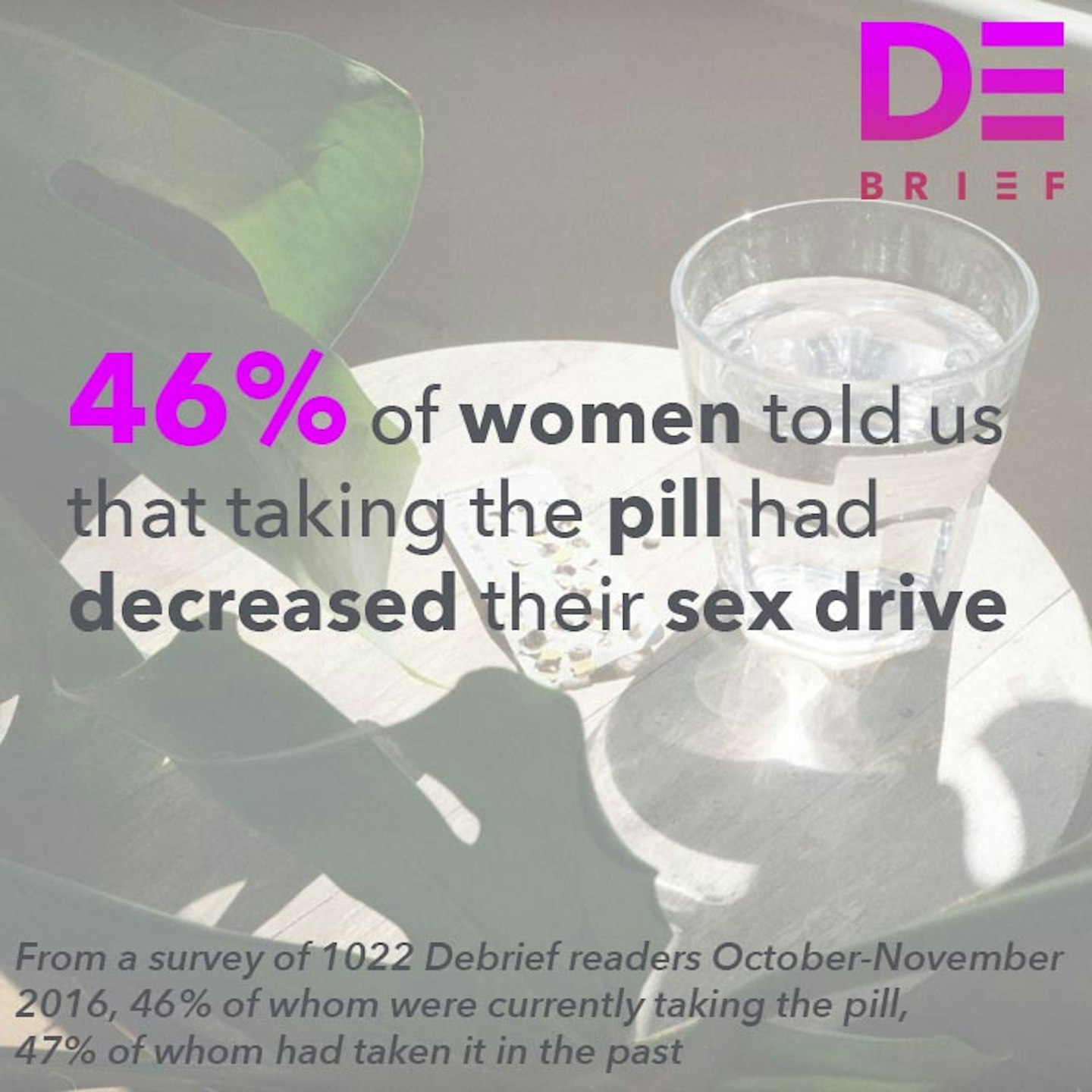 1 of 9
1 of 9Debrief Mad About The Pill Stats
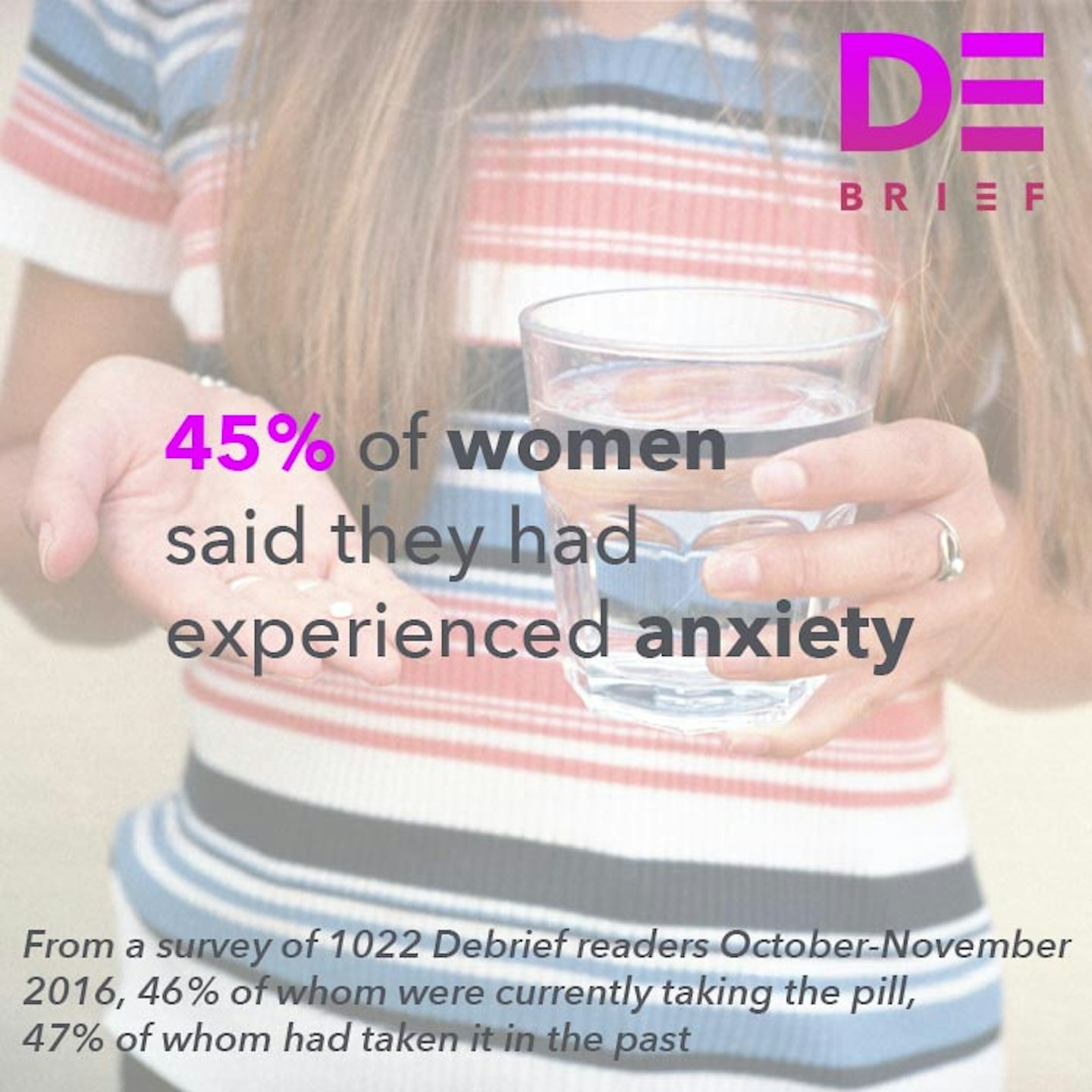 2 of 9
2 of 9Debrief Mad About The Pill Stats
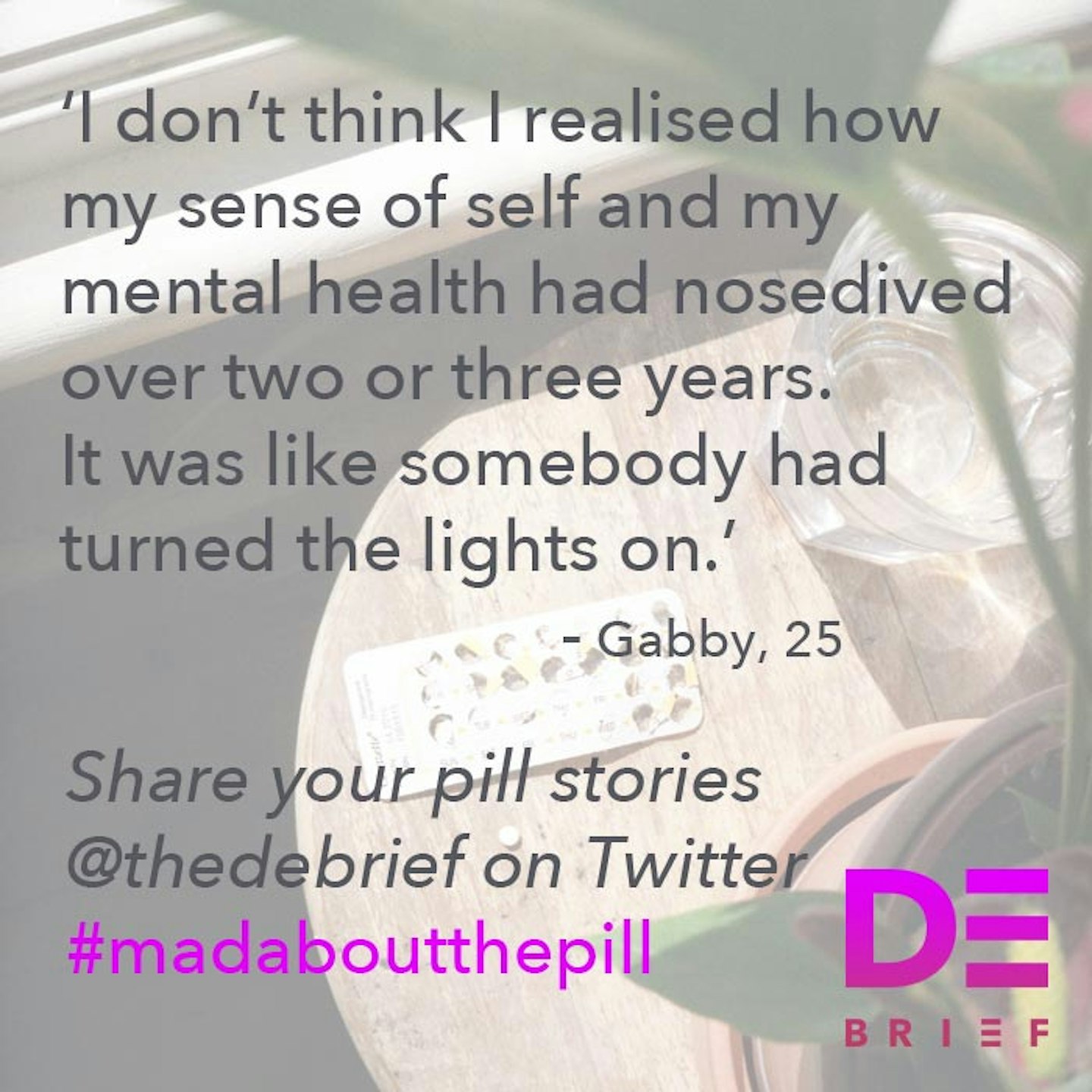 3 of 9
3 of 9Debrief Mad About The Pill Stats
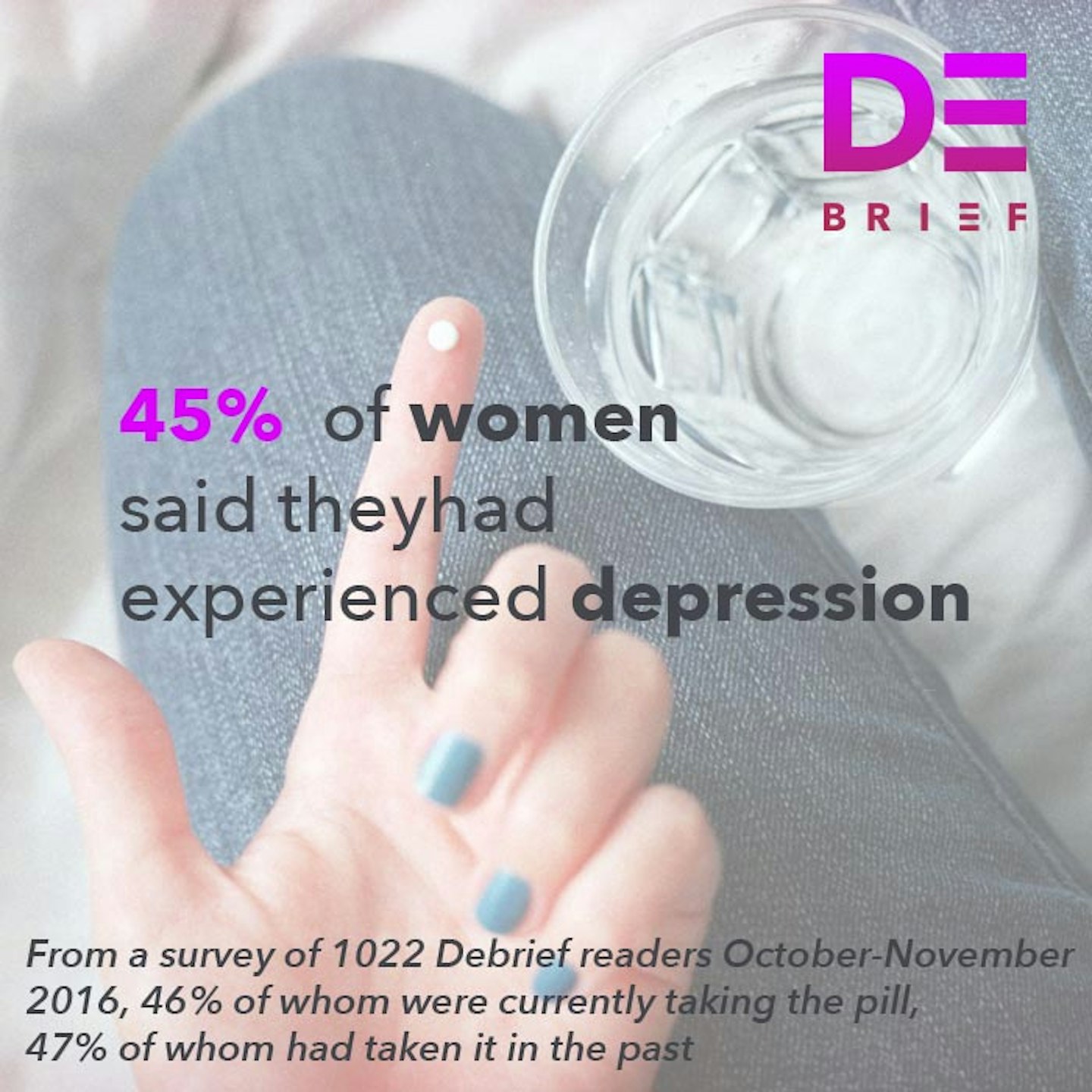 4 of 9
4 of 9Debrief Mad About The Pill Stats
 5 of 9
5 of 9Debrief Mad About The Pill Stats
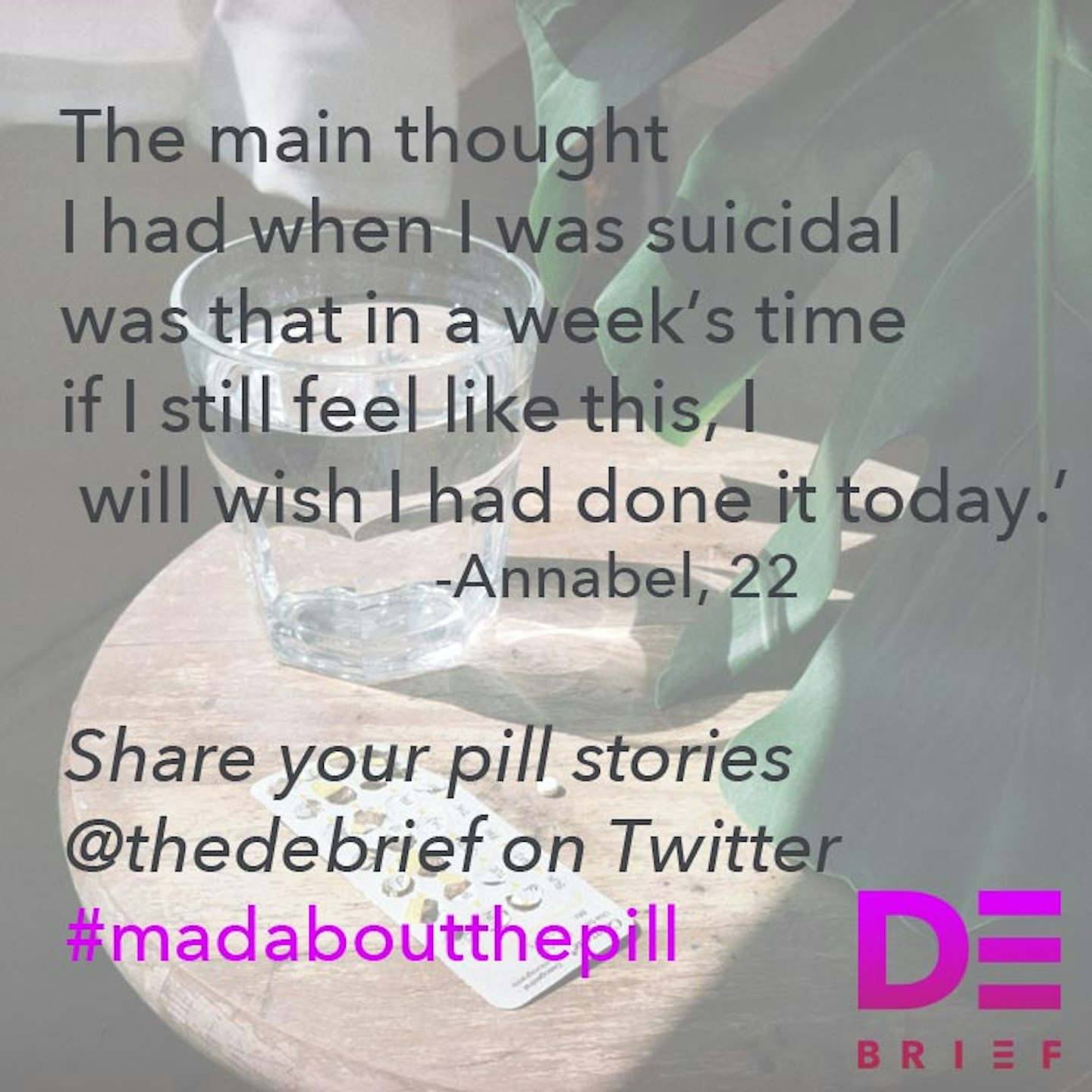 6 of 9
6 of 9Debrief Mad About The Pill Stats
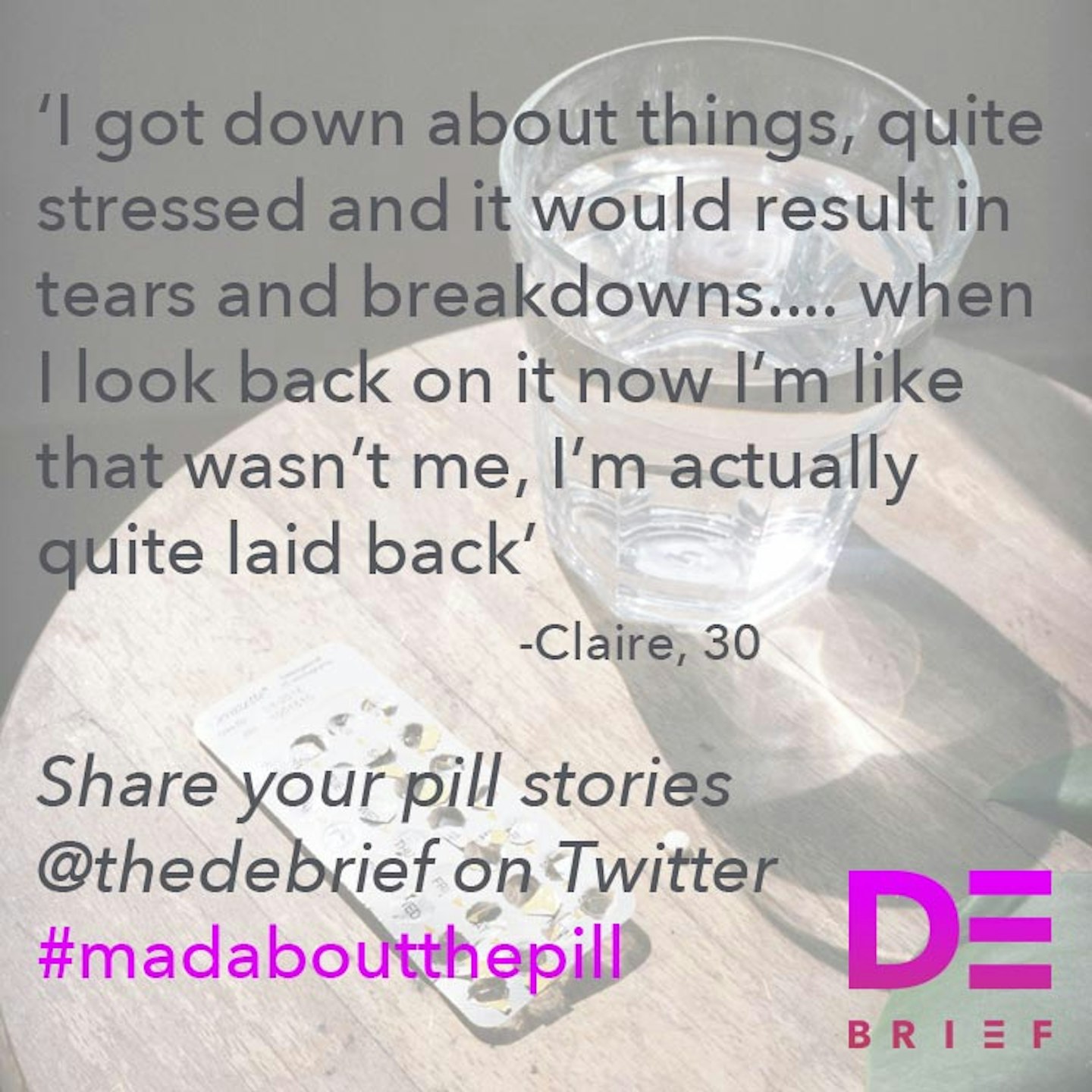 7 of 9
7 of 9Debrief Mad About The Pill Stats
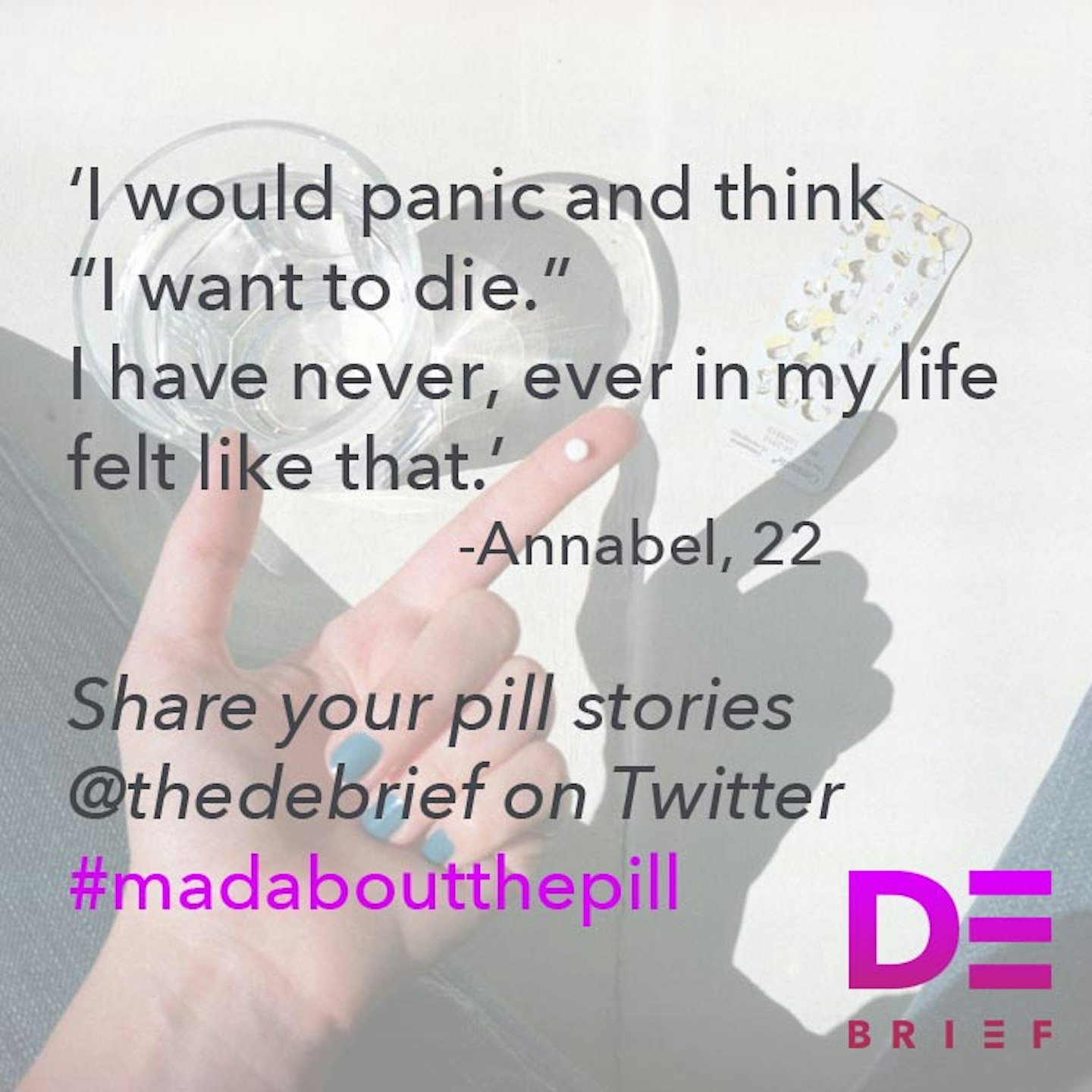 8 of 9
8 of 9Debrief Mad About The Pill Stats
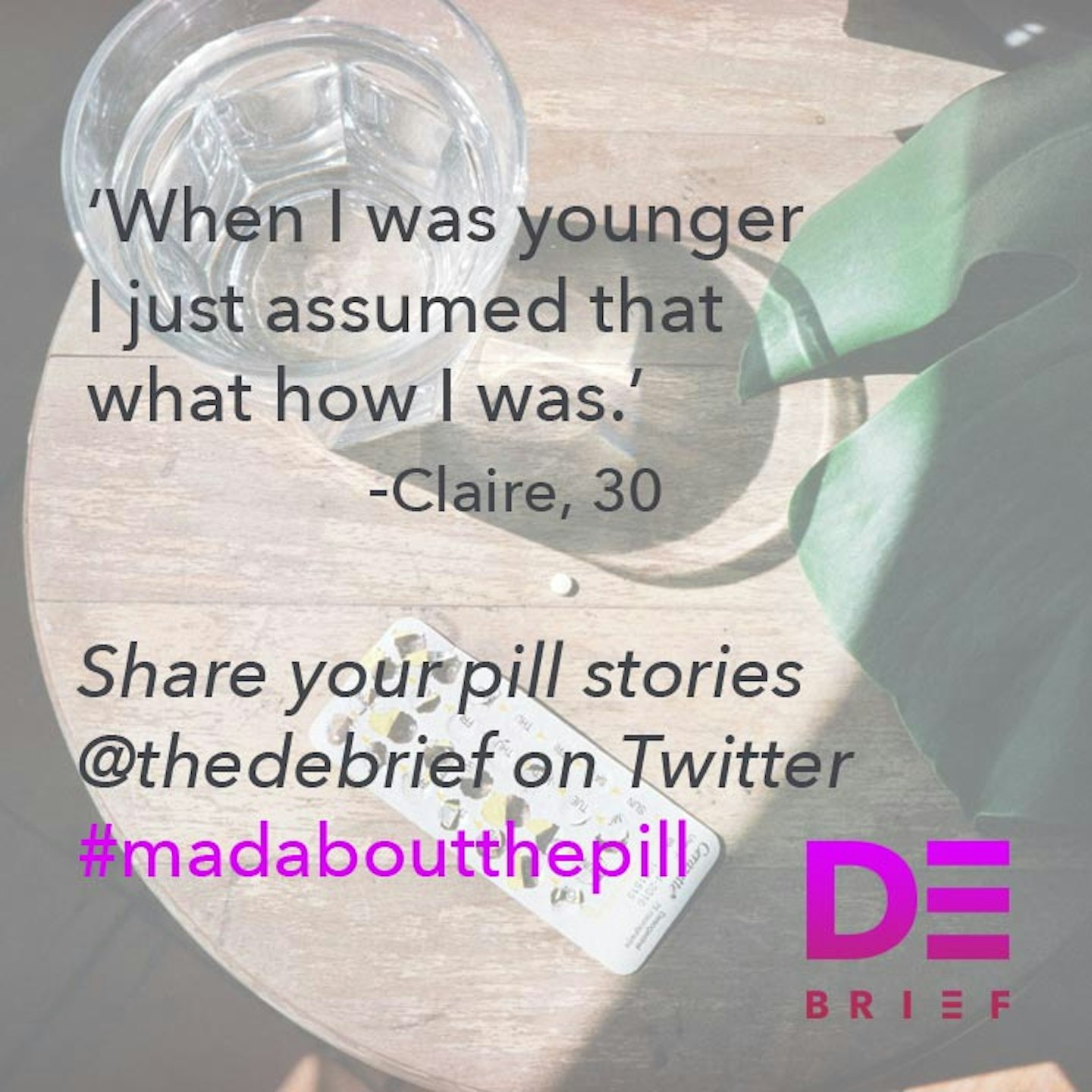 9 of 9
9 of 9Debrief Mad About The Pill Stats
The Debrief: Can you tell us a bit more about what happens to our brains when we fall in love?
**Dr Helen Fisher: **In fact, we've proven that when we put these people into the brain scanners and showed them a picture of their sweetheart it ignited a brain system - the dopamine circuit in the brain. One of the main factories that generate feelings of romantic love lies at the base of the brain, right next to regions that also control our thirst and hunger. It's way below the cortex where you do your thinking, way below the limbic regions which orchestrate the emotions. Romantic love is a drive, it's a basic mating drive to focus your energy on a particular individual and start the bonding process. Thirst and hunger keep you alive today, romantic love causes you to mate and drive your DNA into tomorrow, so it is a basic survival instinct which evolved millions and millions of years ago…we think at least 4.4 million.
**The Debrief: **What happens after we have mated? Is this why the feelings of crazy love seem to fade after a while? Could this explain the deadly relationship 'three-year itch'?
**Dr Helen Fisher: **Well, the research shows that after three or four years it moves from romantic love into feelings of deep attachment. I've actually studied divorce in 80 cultures and it turns out that if you're going to divorce, it's going to happen at or around the fourth year of marriage. When I began looking at this it occurred to me that four years is around the time that it takes one man and one woman to raise one child through infancy. So the pair bond lasts as long as the parents need it to raise a child and then moves into deep attachment.
**The Debrief: **Is it at all possible that romantic love can last longer than that? Otherwise, this is all starting to sound rather unromantic…
Dr Helen Fisher: Yes, absolutely. We put some people into the scanner who had been married on average 21 years and maintained that they were still 'madly in love' and not just loving of one another. When we looked at their brains we found that you are able to sustain feelings of romantic love long term but it's never going to be as intense as the first few months or years where you can't eat, can't sleep and have sex every day.
The Debrief: So, in general, that feeling of not being able to live without someone will go and you'll realise you totally can…
**Dr Helen Fisher: **** Laughs * *well to some people that's a pretty macabre way of looking at it! I conducted a study of married people who had been married over 20 years and asked them if they would remarry their partner. 81% of them said 'yes'! The bottom line is that you can sustain love and feelings of deep attachment long term, but you've got to pick the right person!
The Debrief: Knowing what you know about why we fall in love, do you think we overstate its importance?
Dr Helen Fisher: Oh no. I am not at all surprised that people love so much. We sing for love, we dance for love, we have songs, stories, theatre, operas, love magic, love charms and even love holidays. People pine for live, live for love and die for love. This is one of the most powerful brain systems that the human animal has ever evolved, so it's no surprise that people all over the world seek it. It's a mercurial force that has been regarded in some cultures as destructive and disruptive, taking people off course. But, basically, like the fear system and the anger system it has evolved for a reason and it's not going to go away.
So, there you have it. Love is absolutely, definitely and categorically not a myth. It might initially have been developed by our brains to make sure we had enough babies to overpopulate the planet, bleed its resources dry and ensure that the human race continued to survive but, today, it's as real as any other feeling and we'll probably spend the rest of our lives in pursuit of it whether we like it or not because that's just how we're programmed.
Follow Vicky on Twitter @Victoria_Spratt
This article originally appeared on The Debrief.
